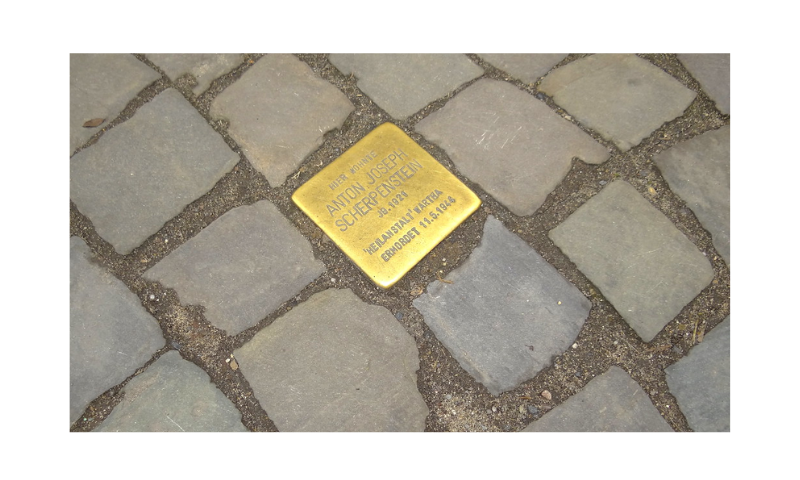Sheryl Abbey
Jerusalem Post, Apr. 5, 2023
“Sometimes you need just one fate.”
Wearing his trademark khakis, clogs and wide felt hat, artist Gunter Demnig angled out of his van and approached those of us gathered outside an old half-timbered house. Local historian Michael Schroeder stepped forward to greet him. “Yes, everything is in order,” he assured him, though Demnig could see the German efficiency for himself in the cordoned-off street, the perfectly aligned brooms, and the municipal workers awaiting instruction.
Demnig opened a cardboard box and, one by one, removed nine concrete cubes faced with brass plates the size of the cobblestones they would replace in front of my family’s ancestral home. I conferred with him to ensure the correct placement: My great-grandparents’ stones should be at the top; then my great-aunt’s, great-uncle’s and cousins’; at the bottom, the stones for my grandparents and my mother. “Yes,” I confirmed. “That is how I want them.”
“Want” is a peculiar word to use in connection with an art installation intended to honor the memory of relatives driven out of their hometown in the 1930s, six of whom were later murdered by the Nazis. I did not want any of this. But I believed it important that my family be remembered there – exactly there – in the village of Bleichenbach in central Germany, where my mother’s family had lived for centuries.
From illegal to ubiquitous
My family’s commemorative plaques are nine of nearly 100,000 Stumbling Stones installed by Demnig to date. The artist first conceived of the idea – setting plaques inscribed with Holocaust victims’ names and details of their fate atop stones laid in front of their last homes – as part of an initiative commemorating Roma and Sinti Holocaust victims in Cologne in 1992. Three years later, he laid the first Stumbling Stones in Cologne, without the city’s permission.
… [To read the full article, click here]


